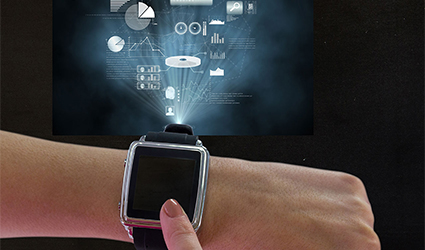Smartphone app for disease diagnosis within one hour
October 6, 2018
Source: drugdu
 2,580
2,580

Infections are getting increased day by day in number. Scientists are having a tough time in finding the quickest cost-effective way to detect the pathogen.
A research team from UC Santa Barbara published an article named ‘Smartphone-based pathogen diagnosis in urinary sepsis patients’ in EbioMedicine journal. A rapid diagnosis of the most commonly prevalent urinary tract infection is possible using smartphone app and mobile camera, where the chemical reaction is measured followed by diagnosis within an hour. Hence, faster and cost-effective recovery is very much possible.
Professor Michael Mahan, the lead author of the study, said "This simple test for urinary tract infections can be conducted in a fraction of the time and cost of clinical diagnostics -- one hour versus 18 to 28 hours. We believe that this lab test holds the exciting potential to bring state-of-the-art diagnostics within easy reach of non-expert users."
This rapid test can detect the pathogen in any patient sample like urine, blood, and faeces. This lab kit including a smartphone, a hot plate, a cardboard box, and LED lights, would cost less than $100. This test can also detect emerging pathogens that lead to health outbreaks. This custom-built app can be downloaded from the Google Play Store, specially developed for the Android users. This research was funded by the National Institutes of Health's National Heart, Lung, and Blood Institute, in addition to the support provided by the Bill and Melinda Gates Foundation and the Chan-Zuckerberg BioHub.
Fried, a clinical care physician said, "The app enables early-stage diagnosis and intervention, which is particularly important in the context of multidrug-resistant pathogens for which treatment options are highly limited. Such early treatment also reduces the risk of the emergence of multidrug-resistant pathogens."
By editorRead more on
- The first subject has been dosed in the Phase I clinical trial of Yuandong Bio’s EP-0210 monoclonal antibody injection. February 10, 2026
- Clinical trial of recombinant herpes zoster ZFA01 adjuvant vaccine (CHO cells) approved February 10, 2026
- Heyu Pharmaceuticals’ FGFR4 inhibitor ipagoglottinib has received Fast Track designation from the FDA for the treatment of advanced HCC patients with FGF19 overexpression who have been treated with ICIs and mTKIs. February 10, 2026
- Sanofi’s “Rilzabrutinib” has been recognized as a Breakthrough Therapy in the United States and an Orphan Drug in Japan, and has applied for marketing approval in China. February 10, 2026
- Domestically developed blockbuster ADC approved for new indication February 10, 2026
your submission has already been received.
OK
Subscribe
Please enter a valid Email address!
Submit
The most relevant industry news & insight will be sent to you every two weeks.



